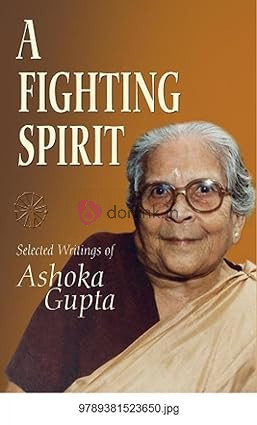Writer : No Name
Edited By : Sarmistha Dutta Gupta & Narayani Gupta
Compiled By : NA
Translated By : NA
Publishers : Niyogi Books India
- Shipping Time : 10 Days
- Policy : Return/Cancellation?
You can return physically damaged products or wrong items delivered within 24 hours with photo/video proof.
Contact Customer Support for return initiation and receive return authorization via email. Securely package for return.
Refunds for eligible returns are processed within 7-10 business days via Bank Transfer.
Order cancellation allowed within 24 hours of placing it. Standard policy not applicable for undamaged/wrong product cases. Detailed info. - Genre : Literature>Anthology/Compilation
- Publication Year : 2013
- ISBN No : 978-93-81523-65-0
- Binding : Card Board (Hard) with Gel Jacket
- Pages : 192
- Weight : 632 gms
- Height x Width x Depth : 9.5x6x0.7 Inch
If so, it will be notified
About the Book
Ashoka Gupta: A Life of Fire and Grace
"Through war and famine, riots and Partition, she did not waver—her hands built, her voice healed, her spirit blazed."
An unyielding force of change, Ashoka Gupta (1912–2008) was more than a social worker—she was a visionary, an activist, a builder of hope. Across seven extraordinary decades, she shaped history with ceaseless grassroots action, embodying the ideals of the Indian Constitution with unwavering conviction.
This volume, woven from her writings and heartfelt recollections, captures the tumultuous 1940s, the pain of Partition, and the fervor of nation-building. From aiding riot victims to standing beside refugees abandoned in Dandakaranya’s wilderness, her journey was one of courage, compassion, and relentless dedication.
A treasure trove for scholars of history, women’s studies, and Gandhian thought, this book is not just a biography—it is a testament to a life lived in service, a legacy etched in resilience.

